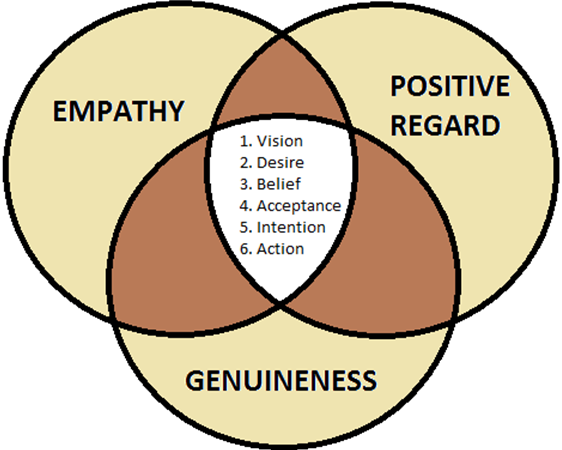A Coaching Model Created by Mutriba Karimova
(Executive Coach, CHINA)
My model is a combination of the sequential steps I intend to take my clients through, which includes the attitudinal element represented by the famous “client-centered approach” developed by the famous American psychologist Carl Rogers (congruence, empathy, unconditional positive regard). I have been an advocate of this approach and therefore, included it in my coaching model. I believe these essential attitudes of the client –centered approach in psychotherapy can also be used with other human interactions including the coaching relationship.
Attitudinal element of the model
The client-centered approach, which I have incorporated into my model, operates according to three basic principles that reflect the attitude of the coach to the client:
- The coach is congruent or genuine with the client.
- The coach provides the client with unconditional positive regard.
- The therapist shows empathetic understanding towards the client
(Note: Information about this approach is readily available online. As such, details on each element have been intentionally left out.)
Phases of the model
- Vision – having clients set a goal or have a picture of where they want to be. It is important to have an initial concept of what it is they want to attain.
- Desire – the goal that clients want to attain should be accompanied by a strong energy. This force energizes their vision and pumps energy into their goals.
- Belief – having clients explore the belief that it is possible to manifest this goal. They should examine if they have the belief of deserving it. Finding out where their beliefs come from, how these beliefs serve them, and why they continue to maintain them? Guiding clients toward creating new definitions for the beliefs that are representatives of what they really want.
- Acceptance – clients should have a total acceptance of who they are and the beliefs that sustain the realization of their goals.
- Action – have clients ground all the ideas of the vision, desire, beliefs and acceptance in the actions they take.
